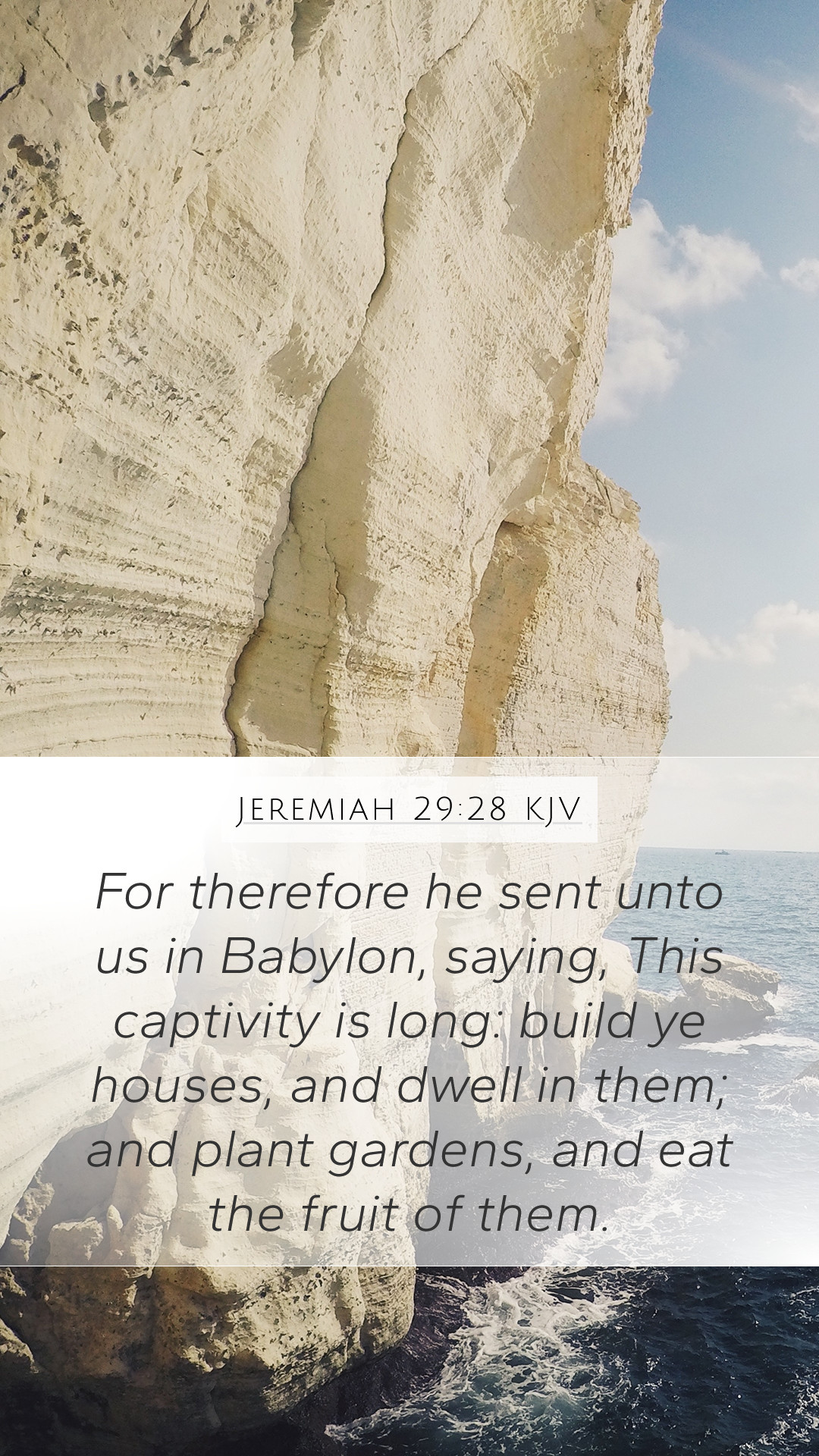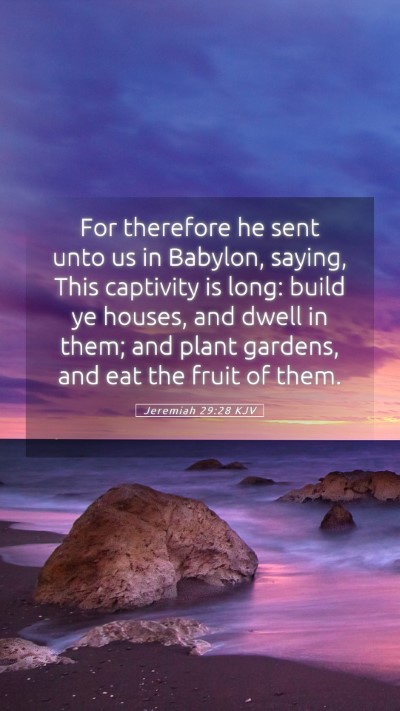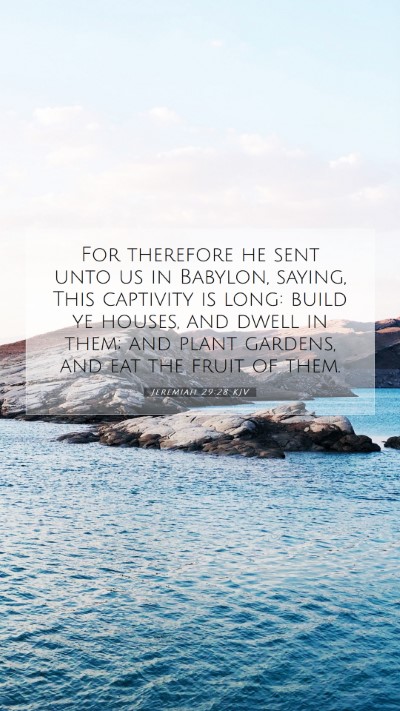Understanding Jeremiah 29:28
Jeremiah 29:28 states: "For he sent unto us in Babylon, saying, This captivity is long: build ye houses, and dwell in them; and plant gardens, and eat the fruit of them." This verse, situated in the broader context of Jeremiah’s message to the exiled community in Babylon, offers profound insights into the trials faced by the Israelites as well as guidance for living in a foreign land. Below is a deep-dive analysis combining commentary from respected public domain sources.
Verse Meaning and Context
The background of this passage lies in the Babylonian Captivity, a period when many Israelites were forcibly removed from their homeland. Jeremiah, the prophet, sends messages of hope and instruction. This particular verse addresses the psychological and spiritual state of the exiles.
Matthew Henry's Commentary
Matthew Henry elaborates on the implications of captivity. He emphasizes that the exiles should make the best of their circumstances by settling down and establishing lives in Babylon. This constitutes an important part of Bible verse explanations, showcasing resilience and adaptation rather than despair.
Albert Barnes' Commentary
In his analysis, Albert Barnes highlights the importance of the instructions provided by Jeremiah. He notes that building houses and planting gardens are practical metaphors for rooting oneself in a community, suggesting that the Israelites were not to view Babylon solely as a place of exile but as an opportunity for growth. This aligns with modern Bible study insights where believers seek to understand and apply scripture to their own lives.
Adam Clarke's Commentary
Adam Clarke provides a perspective on the duality of this command: while acknowledging the pain of dispossession, he suggests that engaging in daily life—through building and planting—could serve as an act of defiance against despair. This notion is integral for understanding Scripture as it presents a way to find agency in adversity.
Interpretation and Application
The message of Jeremiah 29:28 is profound in its call to actively engage with life even in difficult circumstances. Here are key interpretations:
- Resilience: The verse embodies the spirit of perseverance. Instead of succumbing to hopelessness, the exiles are encouraged to thrive.
- Community Building: Establishing homes and gardens symbolizes forming connections and contributing to the society around them.
- Faith in Providence: Even in foreign lands, the Israelites are reminded of God's presence and plans for their future.
Related Bible Verses
This verse can be cross-referenced with:
- Isaiah 40:31 - A verse about hope and renewal.
- Psalms 137:1-4 - Expressions of sorrow in exile.
- Jeremiah 29:11 - God's plans and promises for hope and future.
Conclusion
Jeremiah 29:28 reminds us that life's challenges can also present opportunities for growth. Understanding this verse enhances our Bible study lessons and prepares us to apply similar principles in our daily lives. Engaging with scripture and participating in online Bible study discussions can further deepen our comprehension. By exploring the historical context and present-day implications, believers can find meaning and purpose amid adversity.


